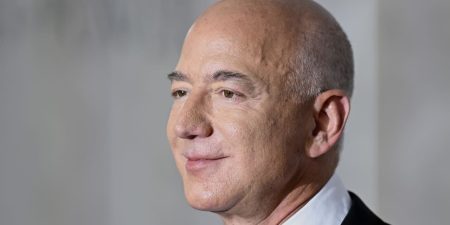Microsoft’s
bid to push through its $69 billion acquisition of
Activision Blizzard
has been bolstered by further progress with the Federal Trade Commission. But concessions demanded by the U.K. regulator could come at a price.
Microsoft
(ticker: MSFT) looks to be close to brushing aside the last of the U.S. regulatory obstacles closing the deal for videogame company
Activision
(ATVI). The FTC already lost its case for an emergency injunction to block the acquisition via the federal courts. Now it looks like the agency might be abandoning its parallel effort via its in-house court.
A filing on the FTC website Thursday showed the case set to go before the agency’s in-house judge in August has been put on hold. That opens the way to settlement talks with Microsoft and Activision.
Activision shares were down 0.1% in premarket trading on Friday at $92.17, just below the $95-a-share acquisition price.
While the FTC could still pursue federal appeals or restart its in-house case in the future, right now there’s a clear path in the U.S. for the deal to be closed, potentially refashioning the videogame industry.
Things aren’t so clear in the U.K. While Microsoft recently said it was confident it can persuade the U.K.’s Competition and Markets Authority to drop its objections to the deal, at least in public the CMA is still taking a firm line. Microsoft might still need to make some concessions.
“Our decision to prohibit the transaction still stands,” Sarah Cardell said in a radio interview with the British Broadcasting Corporation on Friday. “We understand from Microsoft that they are considering a new structure… that would need to fully resolve our concerns,” she said.
The CMA’s concerns revolve around competition in cloud gaming, which allows users to stream videogames via a variety of devices.
Right now, being forced to sell or share cloud-gaming rights in the U.K. –the sixth-largest videogame market in the world– wouldn’t be too painful for Microsoft. However, if cloud gaming turns out to be the future of the videogame industry it could set an awkward precedent for future proposed deals, especially if the U.K.’s cloud-gaming market turns out to be more competitive than in the U.S. Victory could still come at a price for Microsoft.
Write to Adam Clark at [email protected]
Read the full article here















